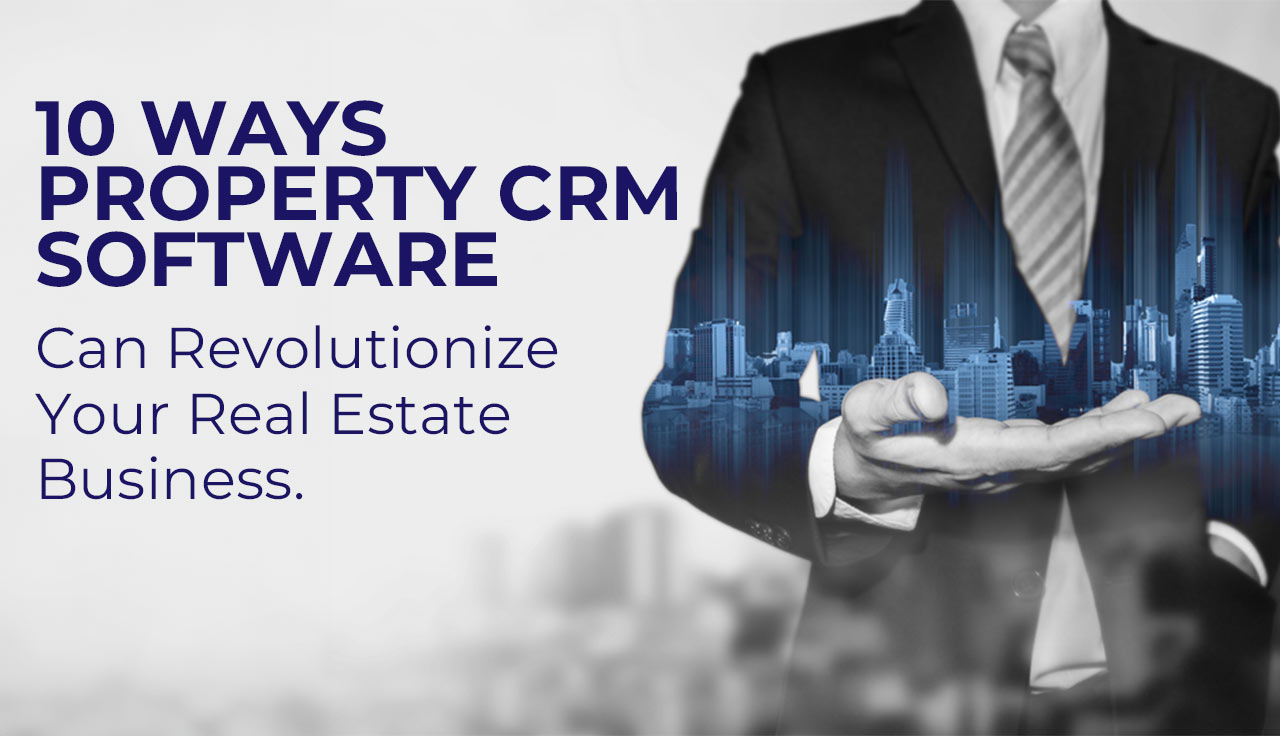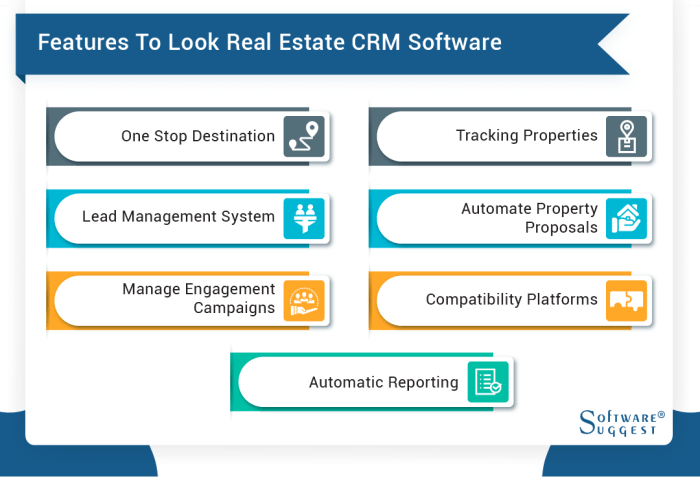Crm software for property management – The property management industry is dynamic, demanding efficiency and precision in handling numerous tasks, from lead generation and tenant communication to maintenance requests and lease renewals. Successfully navigating this complexity requires robust organizational skills and the right tools. Enter Customer Relationship Management (CRM) software, a game-changer for property managers seeking to optimize their operations and boost profitability. This comprehensive guide explores the crucial role of CRM software in property management, its key features, benefits, and considerations for selection.
Understanding the Needs of Property Management CRMs
Unlike generic CRM solutions, property management CRMs are specifically designed to address the unique challenges of the real estate sector. They offer tailored functionalities that streamline various aspects of property management, fostering better organization, communication, and ultimately, increased efficiency. These specialized systems often integrate with other crucial property management tools, creating a cohesive and powerful ecosystem.
Key Features of Effective Property Management CRMs, Crm software for property management
- Lead Management: Efficiently capturing, qualifying, and nurturing leads from various sources (website forms, online advertising, referrals). Advanced features include lead scoring and automated follow-up sequences.
- Tenant Management: Centralized storage of tenant information (contact details, lease agreements, payment history, communication logs). This ensures easy access to critical data and facilitates seamless communication.
- Property Management: Detailed property records (address, features, rental rates, occupancy status, maintenance history). This allows for effective tracking of property performance and informed decision-making.
- Communication Tools: Integrated communication channels (email, SMS, in-app messaging) for seamless interaction with tenants, vendors, and other stakeholders. Automated communication features save time and improve response rates.
- Maintenance Management: Streamlined workflow for handling maintenance requests, scheduling repairs, tracking expenses, and managing vendors. This minimizes downtime and ensures timely resolution of issues.
- Financial Management: Tools for tracking rent payments, managing expenses, generating reports, and ensuring accurate financial records. Integration with accounting software is often a key feature.
- Reporting and Analytics: Comprehensive reporting capabilities to track key performance indicators (KPIs), such as occupancy rates, rental income, and maintenance costs. Data-driven insights inform strategic decisions.
- Document Management: Secure storage and easy access to important documents (leases, contracts, invoices, permits). This minimizes the risk of lost or misplaced documents.
- Integration Capabilities: Seamless integration with other property management tools (accounting software, online payment gateways, marketing platforms) to create a cohesive ecosystem.
Benefits of Implementing a CRM for Property Management
The benefits of adopting a CRM extend beyond simple organization. It significantly impacts profitability and operational efficiency. Here are some key advantages:
- Improved Tenant Satisfaction: Faster response times to inquiries, efficient maintenance handling, and proactive communication lead to happier tenants and reduced tenant turnover.
- Increased Efficiency: Automation of repetitive tasks frees up valuable time for property managers to focus on strategic initiatives and higher-value activities.
- Enhanced Communication: Centralized communication platform ensures clear and consistent communication with all stakeholders, minimizing misunderstandings and improving collaboration.
- Better Lead Management: Efficient lead nurturing and follow-up processes increase conversion rates and maximize rental income.
- Data-Driven Decision Making: Access to real-time data and insightful reports enables informed decisions regarding pricing, marketing, and property improvements.
- Reduced Operational Costs: Streamlined processes and automation contribute to significant cost savings in the long run.
- Improved Compliance: Centralized record-keeping simplifies compliance with relevant regulations and reduces the risk of legal issues.
Choosing the Right CRM for Your Property Management Business
Selecting the appropriate CRM requires careful consideration of your specific needs and budget. Factors to consider include:
- Scalability: Choose a system that can grow with your business, accommodating increasing numbers of properties and tenants.
- Features: Prioritize features that align with your business requirements and workflows. Don’t overpay for functionalities you won’t utilize.
- Integration Capabilities: Ensure seamless integration with existing software and tools to avoid data silos and maximize efficiency.
- User-Friendliness: Opt for a system with an intuitive interface that is easy for your team to learn and use effectively.
- Customer Support: Reliable customer support is crucial for resolving technical issues and getting assistance when needed.
- Cost: Consider the total cost of ownership, including software licensing fees, implementation costs, and ongoing maintenance.
Popular CRM Software Options for Property Management
The market offers a variety of CRM solutions tailored for property management. Research and compare options based on your specific requirements. Some popular choices include (Note: This is not an exhaustive list, and specific features and pricing may vary):
- Buildium: A comprehensive platform offering a wide range of features for property management.
- AppFolio Property Manager: A popular choice known for its user-friendly interface and robust features.
- Rent Manager: A powerful solution suitable for larger property management companies.
- Yardi Breeze: A cloud-based solution offering a balance of features and affordability.
Frequently Asked Questions (FAQs): Crm Software For Property Management
- Q: What is the cost of property management CRM software? A: Costs vary significantly depending on the provider, features, and the number of users. Some offer tiered pricing plans, while others charge per property or user.
- Q: How long does it take to implement a CRM? A: Implementation time depends on the complexity of the system and the size of your business. It can range from a few weeks to several months.
- Q: Can I integrate my CRM with other software? A: Most modern CRMs offer integration capabilities with accounting software, online payment gateways, and other property management tools.
- Q: What are the key performance indicators (KPIs) to track in a property management CRM? A: Key KPIs include occupancy rates, rental income, tenant turnover rates, maintenance costs, and lead conversion rates.
- Q: Is cloud-based CRM better than on-premise CRM for property management? A: Cloud-based CRMs offer greater flexibility, accessibility, and scalability, making them a popular choice for many property management businesses. However, on-premise solutions might be preferred by those with stringent security requirements or limited internet access.
Conclusion
Implementing a CRM is a strategic investment for any property management business seeking to enhance efficiency, improve tenant satisfaction, and boost profitability. By carefully considering your needs and selecting the right software, you can unlock the full potential of your operations and achieve sustainable growth. Take the time to research various options, compare features, and choose a solution that aligns with your long-term goals.

Source: amazonaws.com
References
Call to Action
Ready to streamline your property management operations and experience the benefits of a CRM? Contact us today for a free consultation and let us help you find the perfect solution for your business!
Popular Questions
What are the key features to look for in a property management CRM?
Key features include contact management, lease management, maintenance request tracking, communication tools (email, SMS), reporting and analytics, and integration with other property management software.

Source: amazonaws.com
How much does property management CRM software typically cost?
Pricing varies widely depending on the features, number of users, and provider. Expect monthly subscription fees ranging from basic plans to more comprehensive enterprise solutions.
Can a CRM system integrate with my existing accounting software?
Many CRM systems offer integrations with popular accounting software. Check for compatibility with your specific software before choosing a CRM.
How long does it take to implement a property management CRM?
Implementation time varies depending on the complexity of the system and the size of your operation. Expect a period of setup, data migration, and training for your team.
